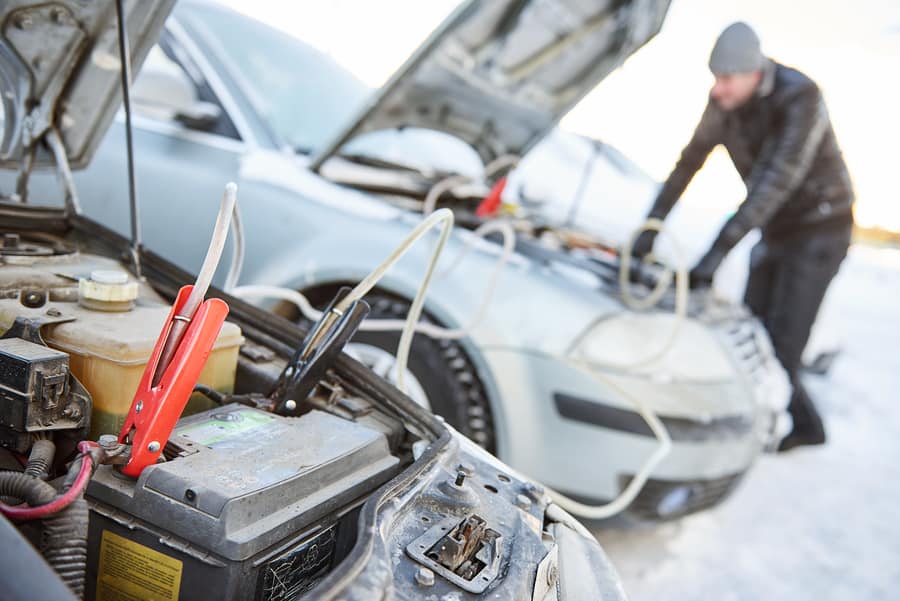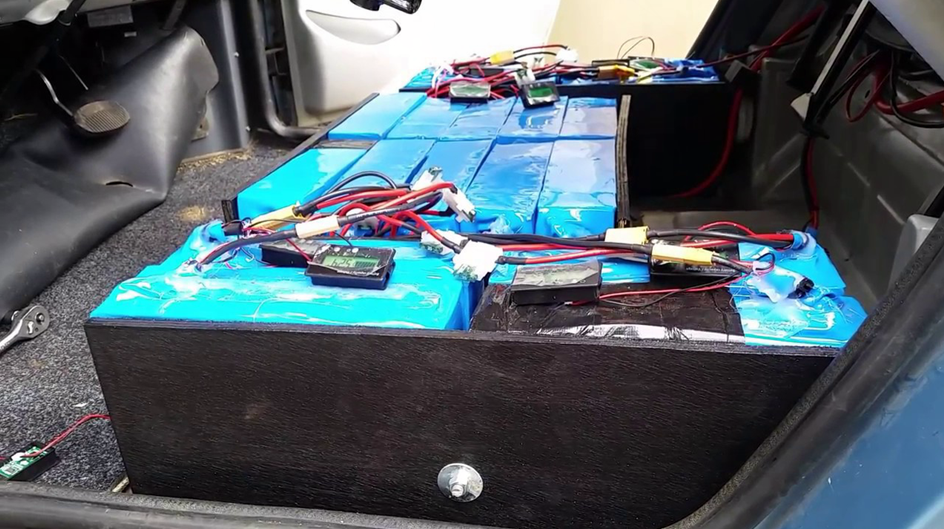Revolutionizing Transportation: The Power of Lithium Batteries in Low-Speed Electric Vehicles
In recent years, there has been a significant shift towards sustainable and environmentally friendly modes of transportation. Electric vehicles (EVs) have emerged as a promising solution to combat the rising concerns of climate change and pollution. While high-speed EVs, such as cars and buses, have gained considerable attention, low-speed electric vehicles (LS-EVs) powered by lithium batteries have quietly revolutionized short-distance transportation.
LS-EVs are designed for urban environments and are commonly used for short commutes, local delivery services, and transportation within campuses or resorts. These vehicles are compact, lightweight, and have a maximum speed of around 25 miles per hour, making them ideal for navigating crowded city streets and limited spaces. What sets LS-EVs apart from their high-speed counterparts is their reliance on lithium batteries.
Lithium batteries have proven to be a game-changer in the world of electric transportation. Their high energy density and long cycle life make them an ideal power source for LS-EVs. Compared to traditional lead-acid batteries, lithium batteries provide more energy storage capacity in a smaller and lighter package. This allows LS-EVs to have longer driving ranges and faster charging times, enhancing their practicality and convenience.
One of the key advantages of LS-EVs powered by lithium batteries is their reduced environmental impact. The use of lithium batteries eliminates tailpipe emissions, reducing air pollution and improving air quality in urban areas. Additionally, lithium batteries are rechargeable, making LS-EVs more sustainable compared to combustion engine vehicles that rely on finite fossil fuels. As the electricity grid becomes greener with the integration of renewable energy sources, the environmental benefits of LS-EVs powered by lithium batteries will continue to grow.
Another significant advantage of lithium batteries in LS-EVs is their superior performance and efficiency. Lithium batteries have a higher energy conversion efficiency compared to other battery chemistries, resulting in better overall vehicle performance. LS-EVs powered by lithium batteries have faster acceleration, smoother rides, and reduced maintenance requirements. These vehicles can also be equipped with regenerative braking systems that capture and store energy during deceleration, further enhancing their energy efficiency.
The versatility of LS-EVs powered by lithium batteries is another crucial aspect of their success. These vehicles can be customized to suit a wide range of applications, such as cargo carriers, passenger shuttles, and even recreational vehicles. Their compact size and maneuverability allow them to navigate narrow streets and tight corners with ease, making them an excellent choice for last-mile delivery services and shared mobility solutions. With the growing demand for sustainable transportation options, LS-EVs powered by lithium batteries are poised to play a significant role in shaping the future of urban mobility.
While LS-EVs powered by lithium batteries offer numerous advantages, there are still some challenges that need to be addressed. The upfront cost of lithium batteries remains relatively high compared to traditional lead-acid batteries, making LS-EVs more expensive. However, as technology advances and economies of scale come into play, the cost of lithium batteries is expected to decrease, making LS-EVs more affordable and accessible to a wider audience.

Furthermore, the availability and accessibility of charging infrastructure is another hurdle that needs to be overcome. LS-EVs rely on a network of charging stations to recharge their batteries, and the expansion of this infrastructure is crucial to support the widespread adoption of electric transportation. Governments, private companies, and communities need to collaborate to develop comprehensive charging networks that are convenient and reliable.
In conclusion, the power of lithium batteries in low-speed electric vehicles cannot be underestimated. These vehicles have revolutionized short-distance transportation in urban areas, offering environmental benefits, superior performance, and versatility. With further advancements in technology and the continued expansion of charging infrastructure, LS-EVs powered by lithium batteries will continue to drive the transition towards a more sustainable and efficient transportation system. It is up to us to embrace and support this revolution to create a cleaner and greener future for generations to come.
-
 In recent years, there has been a growing demand for more efficient and reliable battery solutions, especially in the automotive industry. Lithium starter batteries have emerged as a popular choice for their compact size, lightweight, and high energy density. In this article, we will explore the benefits and applications of lithium starter batteries. Firstly, let's define what a starter...Citeşte mai mult
In recent years, there has been a growing demand for more efficient and reliable battery solutions, especially in the automotive industry. Lithium starter batteries have emerged as a popular choice for their compact size, lightweight, and high energy density. In this article, we will explore the benefits and applications of lithium starter batteries. Firstly, let's define what a starter...Citeşte mai mult -
 În lumea cu ritm rapid de astăzi, în care tehnologia joacă un rol esențial în viața noastră de zi cu zi, cererea pentru soluții de energie eficiente și fiabile nu a fost niciodată mai mare. Bateriile pentru produse industriale de energie au apărut ca o schimbare în ceea ce privește îndeplinirea acestor cerințe de putere, oferind o gamă largă de aplicații în diverse industrii. De la alimentarea mașinilor grele până la furnizarea de energie de rezervă în caz de urgență, aceste...Citeşte mai mult
În lumea cu ritm rapid de astăzi, în care tehnologia joacă un rol esențial în viața noastră de zi cu zi, cererea pentru soluții de energie eficiente și fiabile nu a fost niciodată mai mare. Bateriile pentru produse industriale de energie au apărut ca o schimbare în ceea ce privește îndeplinirea acestor cerințe de putere, oferind o gamă largă de aplicații în diverse industrii. De la alimentarea mașinilor grele până la furnizarea de energie de rezervă în caz de urgență, aceste...Citeşte mai mult -
 Lithium-ion batteries have become a popular choice for various applications, including electric vehicles, renewable energy storage, and portable electronics. Among the various types of lithium-ion batteries, the lithium iron phosphate (LiFePO4) battery stands out for its superior safety, performance, and durability. One such example is the high-capacity 12V 100Ah lithium battery with LiFePO4 technology. This battery is designed to...Citeşte mai mult
Lithium-ion batteries have become a popular choice for various applications, including electric vehicles, renewable energy storage, and portable electronics. Among the various types of lithium-ion batteries, the lithium iron phosphate (LiFePO4) battery stands out for its superior safety, performance, and durability. One such example is the high-capacity 12V 100Ah lithium battery with LiFePO4 technology. This battery is designed to...Citeşte mai mult -
 As technology continues to evolve, so does the need for more efficient and reliable power storage solutions. The traditional lead-acid batteries have been the go-to power storage solution for many years, but they are slowly being replaced by lithium batteries. Lithium batteries have become very popular due to their high energy density, long lifespan, and fast charging capabilities. One of...Citeşte mai mult
As technology continues to evolve, so does the need for more efficient and reliable power storage solutions. The traditional lead-acid batteries have been the go-to power storage solution for many years, but they are slowly being replaced by lithium batteries. Lithium batteries have become very popular due to their high energy density, long lifespan, and fast charging capabilities. One of...Citeşte mai mult -
 Introduction In recent years, there has been a growing demand for reliable and efficient power sources, particularly in the field of renewable energy and electric vehicles. One such power source that has gained significant attention is the Lithium Iron Phosphate (LiFePO4) 48V battery. This article aims to explore the features, benefits, and applications of this battery technology. Features...Citeşte mai mult
Introduction In recent years, there has been a growing demand for reliable and efficient power sources, particularly in the field of renewable energy and electric vehicles. One such power source that has gained significant attention is the Lithium Iron Phosphate (LiFePO4) 48V battery. This article aims to explore the features, benefits, and applications of this battery technology. Features...Citeşte mai mult -
 The High-Capacity 12V 100Ah LiFePO4 Lithium Iron Phosphate Battery is the latest in battery technology. This type of battery is made from lithium iron phosphate, which is a material that provides high performance and long life. It is designed to deliver high capacity and high discharge rates, making it ideal for a wide range of applications. The LiFePO4 battery...Citeşte mai mult
The High-Capacity 12V 100Ah LiFePO4 Lithium Iron Phosphate Battery is the latest in battery technology. This type of battery is made from lithium iron phosphate, which is a material that provides high performance and long life. It is designed to deliver high capacity and high discharge rates, making it ideal for a wide range of applications. The LiFePO4 battery...Citeşte mai mult -
 Portable car jump starter battery charger booster starter is a lifesaver for car owners. It is a versatile device that can help you jump-start a dead car battery, charge your electronic devices and even serve as a flashlight. In this article, we will dive deep into what a portable car jump starter battery charger booster starter is, how it works,...Citeşte mai mult
Portable car jump starter battery charger booster starter is a lifesaver for car owners. It is a versatile device that can help you jump-start a dead car battery, charge your electronic devices and even serve as a flashlight. In this article, we will dive deep into what a portable car jump starter battery charger booster starter is, how it works,...Citeşte mai mult

